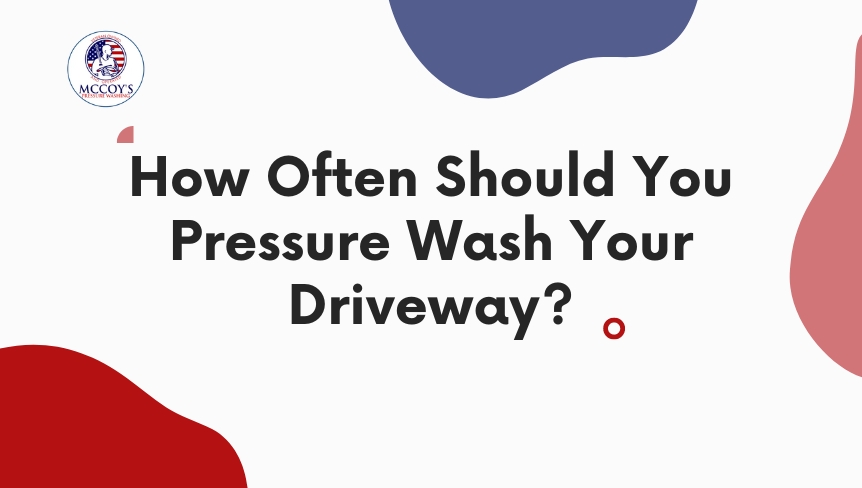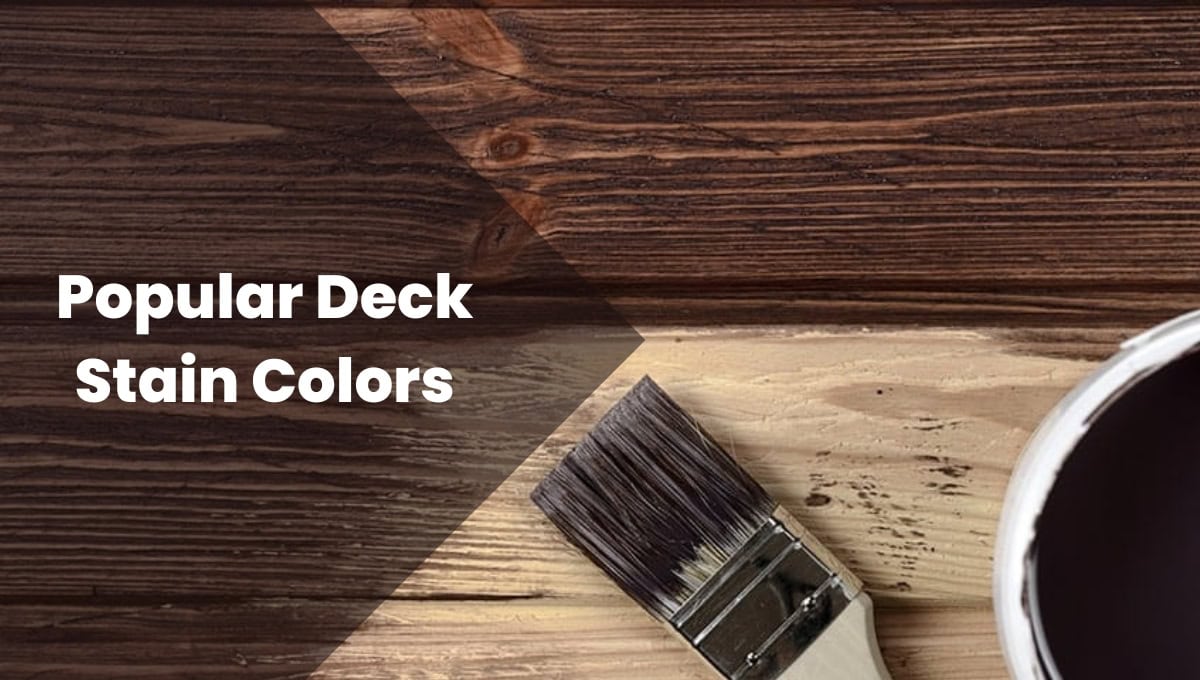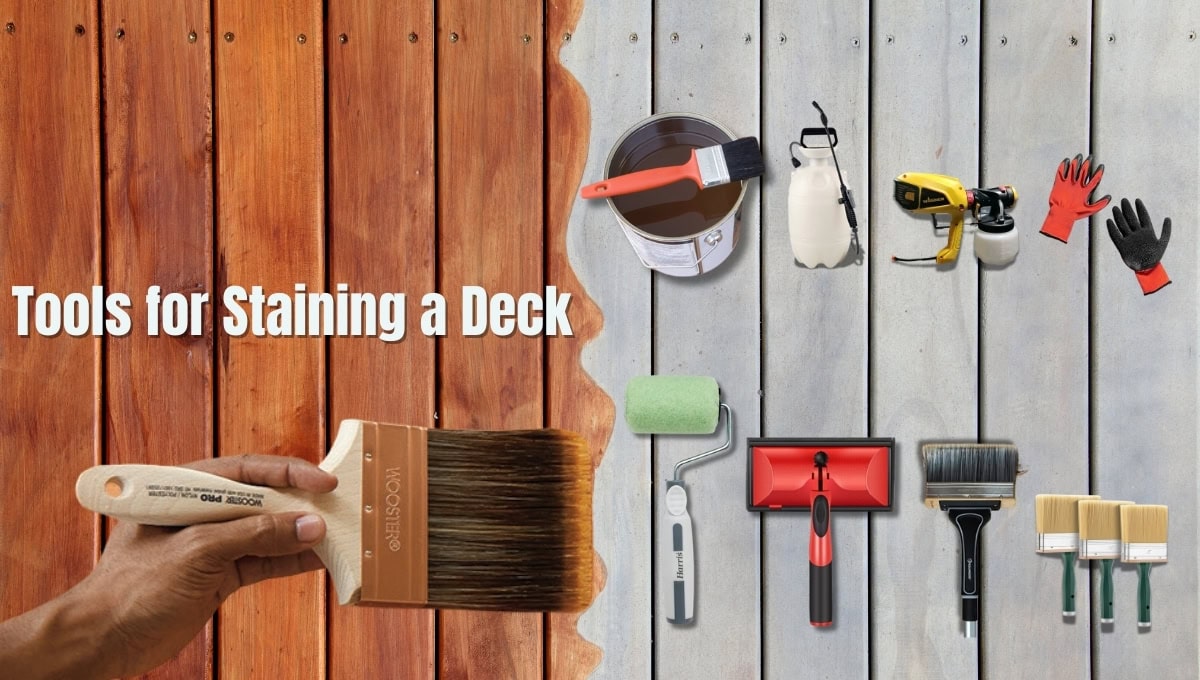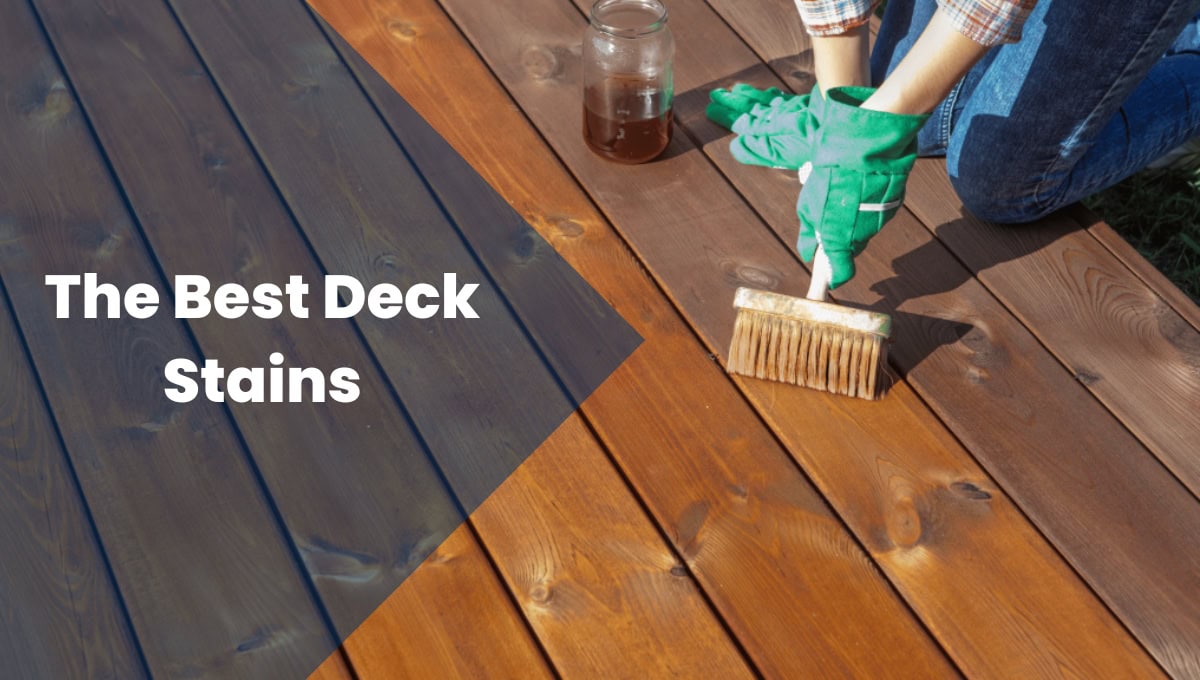“How often should you pressure wash your driveway?” is a question many homeowners ask to keep their driveways clean and in good condition. Experts recommend that you should do this at least once a year. The yearly cleaning helps remove dirt and stains that can make your driveway look bad and even cause damage over time. In fact, doing it can make taking care of your driveway much easier all year round.
However, some driveways might need more frequent cleaning, especially if you live in a place with a lot of humidity or if your driveway gets a lot of use. For instance, washing your driveway more than once a year in areas with high moisture can prevent mold and mildew from growing. Remember, keeping your driveway clean makes it look better and long-lasting.
What Factors Should Be Considered When Deciding To Pressure Wash Your Driveway?
When it comes to maintaining your driveway, knowing when to pressure wash is crucial for preserving its appearance and longevity. A well-maintained driveway can enhance your home’s curb appeal by up to 10% and prevent damage that might lead to costly repairs. To help you decide, consider the following factors that influence how often your driveway needs cleaning.
Traffic
The amount of traffic your driveway endures significantly impacts how often you should pressure wash it. Driveways with frequent use by cars, bikes, and foot traffic accumulate dirt, tire marks, and oil stains faster. These not only look unsightly but can also create safety hazards.
By following a reliable pressure washing guide, you can remove these stains and keep your driveway in optimal condition. Regular inspections and timely pressure washing ensure your driveway remains clean, safe, and visually appealing, especially if it sees heavy traffic.
Location
Your home’s location plays a pivotal role in how dirty your driveway becomes. Areas near trees, construction zones, or dusty roads are more prone to dirt and debris accumulation.
If your driveway collects leaves, sap, or construction dust more quickly than others, regular cleaning becomes essential. Pressure washing is an effective way to combat these environmental factors, ensuring your driveway remains spotless regardless of your surroundings.
Climate
Weather conditions heavily influence when to pressure wash your driveway. In rainy or snowy climates, mud, algae, and salt can build up, creating slippery surfaces. Freeze-thaw cycles in colder regions can lead to cracks, which trap dirt and moisture.
In warmer, humid climates, mold and mildew are more likely to grow. Scheduling pressure washing at least once a year—or more frequently in extreme weather conditions—helps protect your driveway from the elements and maintains its safety.
Sealing
One critical reason to seal your driveway is that a sealed surface repels water, oil, and dirt, making it easier to maintain. Sealing acts as a protective barrier, reducing the need for frequent pressure washing.
However, even sealed driveways require occasional cleaning to maintain their appearance and effectiveness. Regular pressure washing ensures the sealant remains intact and that stains or grime don’t diminish the driveway’s look or functionality.
Nearby Trees and Shrubs
Driveways surrounded by trees and shrubs are more likely to accumulate natural debris like leaves, sap, and bird droppings. These can lead to stains and slippery surfaces, increasing the need for cleaning.
Pressure washing is a practical solution to remove these organic build-ups. If greenery surrounds your driveway, scheduling regular pressure washes will help keep it clean, safe, and inviting.
Family Allergies
If anyone in your household suffers from allergies, keeping your driveway clean is essential. Driveways can harbor allergens such as pollen, mold, and mildew, which can worsen allergy symptoms.
By using a pressure washing guide tailored for allergen removal, you can ensure a healthier environment around your home. Regular cleaning reduces allergens, offering relief for family members and contributing to a more comfortable living space.
Types of Driveway Materials and How Often You Need to Pressure Wash These Surfaces
Driveways come in different materials; each type needs special care to stay clean and in good shape. Knowing how often to pressure wash your driveway depends on what it’s made of. Let’s explore the common materials and the best cleaning schedules for each.
Concrete
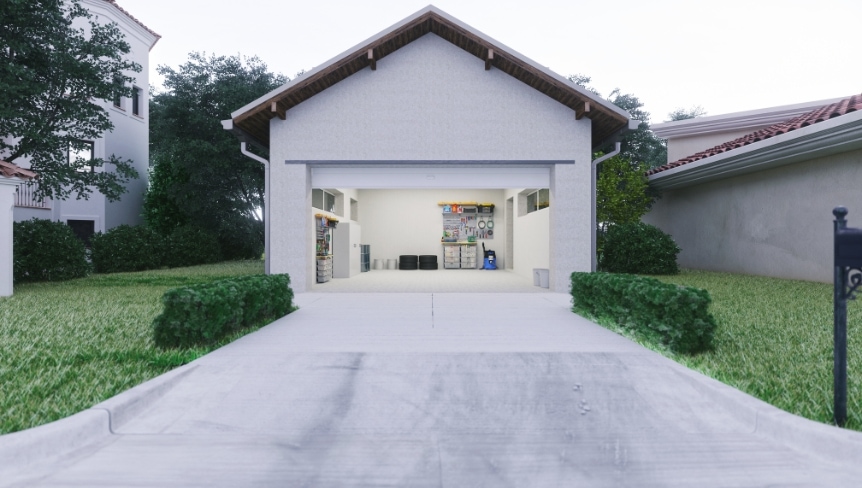
Concrete driveways are a solid and popular choice for many homeowners due to their durability and low maintenance. They can handle hot climates well and complement various home styles. However, concrete can get dirty with oil stains and grime.
You should pressure wash a concrete driveway at least once a year. It helps keep it looking fresh and prevents dirt from causing damage. If your driveway gets a lot of traffic or trees are overhead, you might need to clean it more often to keep it nice and tidy.
Asphalt
Asphalt driveways offer a smooth surface and are cost-effective, especially for longer driveways. They perform best in colder climates but require resealing every few years to maintain their integrity and appearance.
Like concrete, you should pressure wash asphalt at least once a year. This removes harmful substances and keeps the driveway looking new. Asphalt is a bit more delicate than concrete, so it’s important to use the right pressure setting to avoid damage.
Brick

Brick driveways provide a classic, high-end look and are extremely durable, capable of lasting for many generations. They add charm and character to a home. Bricks can withstand all weather conditions, and if necessary individual bricks can be replaced. Regular maintenance is required to maintain their appearance and prevent weed growth between the bricks.
You should pressure wash a brick driveway yearly to remove moss, weeds, and dirt that can settle between the bricks. It keeps your driveway looking beautiful and also helps prevent the bricks from shifting or becoming loose.
Paver
Paver driveways are made of individual stones, creating a unique and attractive look. They are low-maintenance, long-lasting, and can easily complement the aesthetic of any home. These driveways should be pressure washed once a year to remove weeds and dirt from between the pavers. Doing so helps maintain the driveway’s appearance and prevents damage from plants growing in the gaps.
Gravel
Gravel driveways are the most affordable option and offer a variety of sizes and colors of gravel. They don’t need pressure washing in the traditional sense, but they do require maintenance. Instead of pressure washing, you should rake and level your gravel driveway regularly to keep it neat and to remove debris. It helps prevent the buildup of leaves and dirt, which can affect the driveway’s drainage and appearance.
Best Season To Pressure Wash Driveway Surfaces
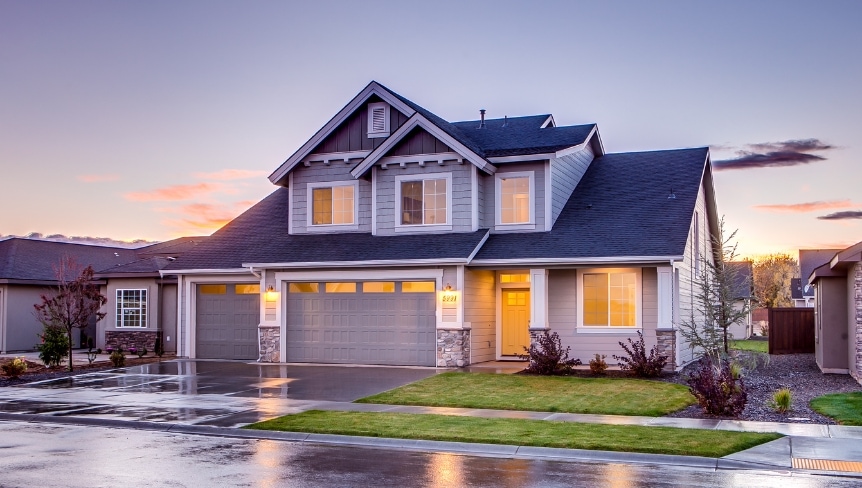
The best season to pressure wash driveway surfaces is usually during the spring or early summer. This timing is perfect because the weather is not too hot or cold, which makes it easier for the water to dry and for any cleaning solutions to work effectively. Also, cleaning your driveway during these seasons helps prepare it for the heavy use it might see in the summer and removes any grime or salt buildup from the winter months, keeping it looking its best.
Choosing the right time to clean your driveway can make a big difference in its appearance and lifespan. If you’re unsure when to do it or how to get the best results, consider contacting professionals who know exactly what they’re doing. With over three decades of expertise, McCoy’s is here to help. Our experienced team can make your driveway look new again, ensuring it’s clean, safe, and ready for any season.
Don’t wait; contact us today and see the difference that professional care can make!
FAQs
Can You Pressure Wash A Driveway Too Much?
Yes, it’s possible to pressure wash a driveway too much. Over-washing can damage the surface, causing it to wear down or erode, especially if the pressure is too high or the nozzle is too close to the driveway’s surface. It’s important to wash your driveway only as often as needed to keep it clean and to use the right pressure settings to avoid damaging the concrete, asphalt, or pavers.
Should You Seal Your Driveway After Pressure Washing?
Sealing your driveway after pressure washing is a great idea. Sealing adds a protective layer that helps prevent stains, reduces the risk of cracks, and extends the life of your driveway. It’s best to wait for your driveway to completely dry after washing before applying a sealer. The process can significantly enhance the appearance of your driveway and protect your investment.
Can Pressure Washing Help With A Slippery Driveway?
Yes, pressure washing can effectively reduce slipperiness on your driveway by removing algae, mold, mildew, and other substances that can make the surface slippery. Regular cleaning can improve safety and prevent accidents, especially in damp or shaded areas where slippery conditions are more likely to occur. For persistent problems, consider using a cleaning solution designed to kill algae and mold during the pressure washing process.
How Much Does It Cost to Pressure Wash a Driveway?
The average cost to pressure wash a driveway is between $100 and $300, but varies depending on the size of the driveway, the degree of dirt and staining, and your location.
Call us today at 615-290-6013 for free estimation!

